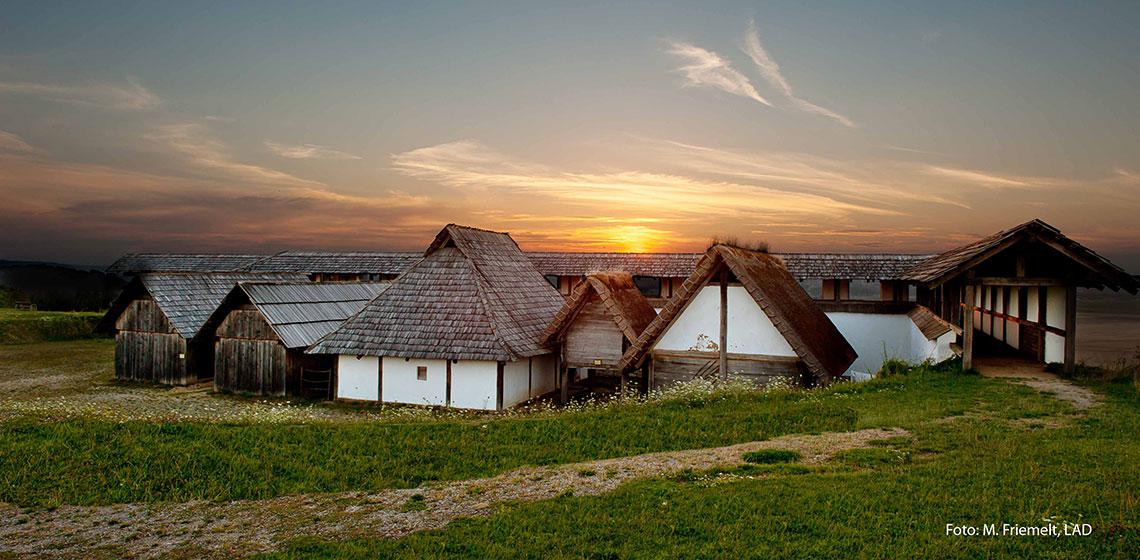Freilichtmuseum Heuneburg - Keltenstadt Pyrene (DE)

The open-air museum Heuneburg Keltenstadt shows reconstructed buildings on the Heuneburg plateau. The Heuneburg itself is a prehistoric hill site at the upper course of the Danube between Ulm and Sigmaringen. It is one of the most well-known Celtic sites in Central Europe. The main occupation was during the 6th century BC., when a Celtic prince site was located here. The hill fort was surrounded by several burial mounds containing luxurious grave goods. Based on the results of current research projects the Heuneburg may be correlate with the Celtic city Pyrene mentioned by the Greek author Herodotus.
The Heuneburg in Baden-Württemberg is a famous Celtic Oppidum from the Early Iron Age, the Middle European Hallstatt Period (7th - 5th century BC). At the end of the 1990s the Federseemuseum and the Heuneburgmuseum at Herbertingen planned to expand their indoor museums both with an outdoor reconstructed area, by means of LEADER+ money from the European Union.
The indoor museum is in Hundersingen, housed in a 18th century granary of the former “Holy Cross Valley Monastery”(Heiligkreuztal).
The Heuneburg itself, overlooking the Danube, is most exceptional for its constructional remains north of the Alps which resemble ways of building from the Mediterranean, like the use of mud brick walls. A part of 80 metres of the original wall was reconstructed, 5 metres high, together with a few of the original houses, a storage and a carpenter’s workshop. An archaeologist was in charge of the original reconstruction plans as well as the first years of the running of the open air museum in combination with the indoor museum.
Focus of the archaeological open-air museum is to mediate the past, being in this case the Middle European Hallstatt Period. Special attention goes to school groups and children in general. Besides of this important aspects are reconstruction of structures and keeping them in place as well as reconstruction of crafts.
At the open-air museum several buildings has been reconstructed so far: a section of the mud brick wall, which is singular in Central Europe, workshop and storage rooms, a dwelling house, the manor house as well as the monumental stone gate. The museum offers guided tours and archaeological hikes, hands on areas, workshops to old techniques, lectures and academic conference. Special events present demonstrations of ancient craft work by experimental archaeologists and reenactment groups. Annual archaeological excavations take place at the Heuneburg.
There is also a charming 8-kilometres walk lasting 3 hours, which connects the museum with the reconstructed village and with many other Celtic sites in the area, among which Hohmichele, famous for its princely burial mounds.
